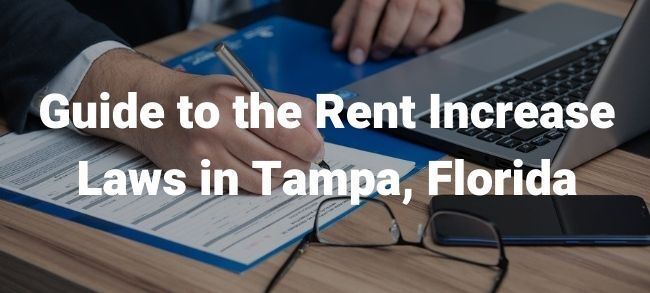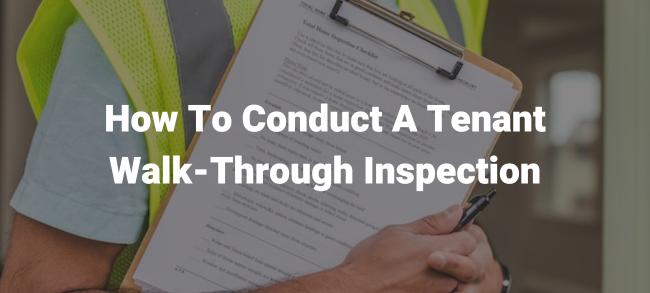Guide to the Rent Increase Laws in Tampa, Florida
Are you thinking about raising rent?
Is there a limit to how much a Florida landlord can raise rent by?
Fortunately for you, the Florida laws don’t limit how much you can raise the rent by. This means that you can raise the rent by whatever amount you want. You’ll only need to notify your tenant beforehand with advance notice.
However, it’s good to keep in mind that overcharging your occupants can be counterintuitive. Instead of boosting your cash flow, you may end up losing it entirely if your tenant decides to move out. Finding new renters requires more time and money.
That being said, undercharging your tenant is also something you’ll want to avoid. You will damage your cash flow by leaving money on the table. Prospective tenants also may become wary of renting a property that is renting at an amount lower than the market average. Click here to learn how to determine the correct amount of rent to charge.
Can Florida landlords raise rent during a pandemic like COVID-19?
During the COVID-19 pandemic, many states have passed laws that cushion occupants from being evicted. However, there are still no restrictions (temporary or otherwise) on increasing the cost of rent as a landlord in Tampa, Florida.
That being said, with the uncertainty that exists in the current rental market, you may prefer keeping your original rates as opposed to potentially finding a new tenant.
How much notice do Florida landlords need to give tenants when raising rent?
How much notice a landlord needs to give depends on whether the tenant has signed a month-to-month rental agreement or a fixed-term one. With a month-to-month rental agreement, a the landlord, you need to give your tenant at least a 15-days notice before increasing rent.
With a fixed-term lease, Florida doesn’t have laws that directly address how much notice a landlord should serve their occupants prior to upping their rent. Without a statewide law giving direction, you should look at your lease agreements. Do they mention anything in regards to how much notice should be given in the case of rent raises? If not, then by default, you can only change the terms of the lease after the existing term ends.
Therefore, a landlord can safely assume that the notice period for increasing rent is the same as the one for ending a lease. If your lease agreement also doesn’t mention the notice period for lease termination, then the agreement will fall into the category of month-to-month agreements.
What exactly is a “notice” as per Florida state law?
As per Florida tenancy laws, a “notice” is a physical letter that a landlord delivers to a tenant, either by mail or in person. Click here for an example template of this kind of notice.
What information should the notice relay to the Florida tenant?
When raising rent, the notice a landlord gives their tenant should convey certain important information. In its most basic form, it should state two important things.
- The amount the rent increases by.
- When this rent increase will go into effect.
This notice must be written and delivered to the tenant, either by mail or in person.
Can landlords in Florida increase rent for any reason?
To increase the rent, a landlord must have a legitimate, legal reason to do so. For example, landlords cannot raise rent for retaliatory or discriminatory reasons.
Under the Florida landlord-tenant law, occupants of the unit have certain rights. These include the right to:
- Form a tenant’s union to advocate for the rights of renters.
- Join a tenant’s union.
- Live in a habitable property.
If Florida landlords raise rent shortly after the tenant exercises one of these rights, a court will probably consider this a retaliatory act. As a Florida landlord, you cannot discriminate against any renters, which means you cannot raise the rent for discriminatory reasons.
The Federal Fair Housing Act prohibits discrimination against the 7 protected classes. These classes are race, religion, familial status, national origin, disability, sex, and color. Florida also protects additional classes, such as ancestry, sexual orientation, and unfavorable military discharge.
Does increasing the rent impact the amount of the security deposit?
Much like rent, Florida doesn’t limit how much landlords can charge as security deposits. Generally, increasing the cost of rent means increasing the security deposit as well. That’s because it's usually a multiple of the monthly rent.
For instance, suppose you initially charged a renter $1,000 a month for rent and $2,000 as a deposit. In such a case, it means that it's 2X the monthly rent. So, if you decide to charge $1,200 as rent, it, therefore, means that you could raise the deposit to $2,400. Make sure to check the Florida security deposit laws and your local laws to make sure you don't take any illegal actions.
Can your occupants object to the increase?
Yes. Your Florida tenant doesn’t have to agree with the increase. In that case, they would continue paying the existing rate until the end of the lease and then move out.
Conclusion
Do you need help with determining how much rent to charge your Miami, Florida tenants? If so, Advantage Realty Services can help. We serve the areas of Monroe, Tampa, New Tampa, Tampa Palms, Lutz, Odessa, Land O Lakes, and Wesley Chapel in Pasco and Hillsborough Counties. Contact us for more information!












